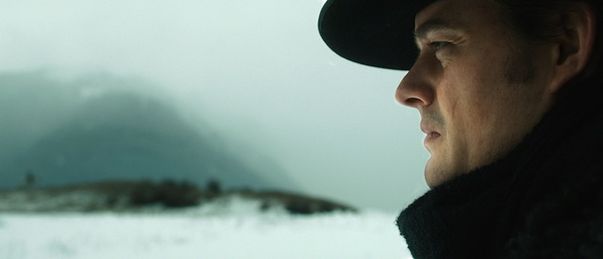Overcooked Wiener Western
Dasha Lisitsina of the Talent Press 2014 reviews the Austrian neo-western THE DARK VALLEY, which is presented in a Berlinale Special Gala.

Andreas Prochaska's THE DARK VALLEY
Deeply steeped in the traditions of the Western, Austrian director Andreas Prochaska's THE DARK VALLEY (Das finstere Tal) from Berlinale Special jumps from cliché to cliché with the recklessness and wild abandon of a madman with a rifle. In 19th century Austria, an American traveller, played by Sam Riley, comes to rescue a village from despotic, uncivilised rule, saving a Mädchen in distress while he's at it – a brazen piece of undisguised ideology. The obligatory scenes are all there: the confrontation between the threatening outsider and the locals; the revel of the merry band of bearded brothers; the chase; the confession. They appear as nothing more than checklist boxes. Although the premise of transplanting a genre that is particularly American to an Austrian cultural setting is promising in the abstract, the result feels like a pastiche of a Western forced into European clothes.
The opening cinematography has hints of a distinctly European pseudo-arthouse sensibility and does its best to peck a little flesh off a narrative corpse. The film opens out from claustrophobic close-ups of fragmented faces in chiaroscuro to slowly swooping panoramas of rugged snow-covered mountains. The camera approaches figures from the back and follows ominous thudding footsteps to create tension, much of which is also carried by a masterful original score. But the weak script is not able to sustain the element of mystery. The motivation for the protagonist's vengeance feels like blind monomania in the absence of psychologically motivating factors in a performance that is as bland as the hackneyed lines it delivers. There is no dark secret beneath the avenger's forever brooding eyes; the mist of the mountains is just a scientific phenomenon; the token beauty is as pure as snow. A narrative that could easily lend itself to darker layers remains a gleaming, thin surface.
THE DARK VALLEY's accumulation of genre referencing culminates in a bombastic shoot-out that leaves a cargo of splayed bodies like geometric patterns on the snow. This finale is an exercise in excess, but lacks the taut stylization of, for instance, Tarantino's bloodbaths. It descends into farce. The very last reaction a drama wants from its audience is laughter at crucial moments of supposedly heightened tension.
The funny thing about genre is, if you don't satisfy the audience's generic expectations enough, you will disappoint; give them exactly what they want on a silver plate, and you will disappoint them even more.

